T A K E T H E C H A L L E N G E
Plastic Free July is a world-wide, month-long challenge with the goal of curbing plastic consumption. If you’re looking for an opportunity to reduce your plastic footprint this is the challenge for you!
1.
Choose your commitment.
How will you avoid plastic in July? Challenge yourself for one day, one week, or the entire month.
2.
Join our team challenge.
Join UCF Sustainability Initiatives for tips, tricks, and support along your plastic free journey!
3.
Make a plan.
Congrats! You’re doing it! Read the No Plastic July Survival Guide for potential single use plastic alternatives.
Helpful Links
Click here to find out how you can reduce your waste, in all aspects. This website will help you work through your plastic free challenge at school, work, events, and in your community.
Going plastic-free can be difficult, especially when you live in a family household. The ease and disposability of plastic can make family lifestyles easier, but each piece of plastic will live beyond your grandchildren. Personal hygiene, food purchasing, and pet care can all consume lots of plastic, but it’s easy to get creative and avoid plastic when you have a support system. Call on us to be your backbone! Check out the EcoChallenge website to find alternatives for pervasive plastics in family life, pet ownership, personal care and more!
Check out this site for daily tips! This list consists of 31 tips for successful Plastic Free July, and incorporates the 5 R’s: Refuse, reduce, recycle, reuse, rot (compost).
This site lists 100 steps to a plastic-free life, and even if you don’t go totally plastic-free, this will help fill in some gaps! It lists simple things, which one may never expect to have plastic, and suggests alternatives.
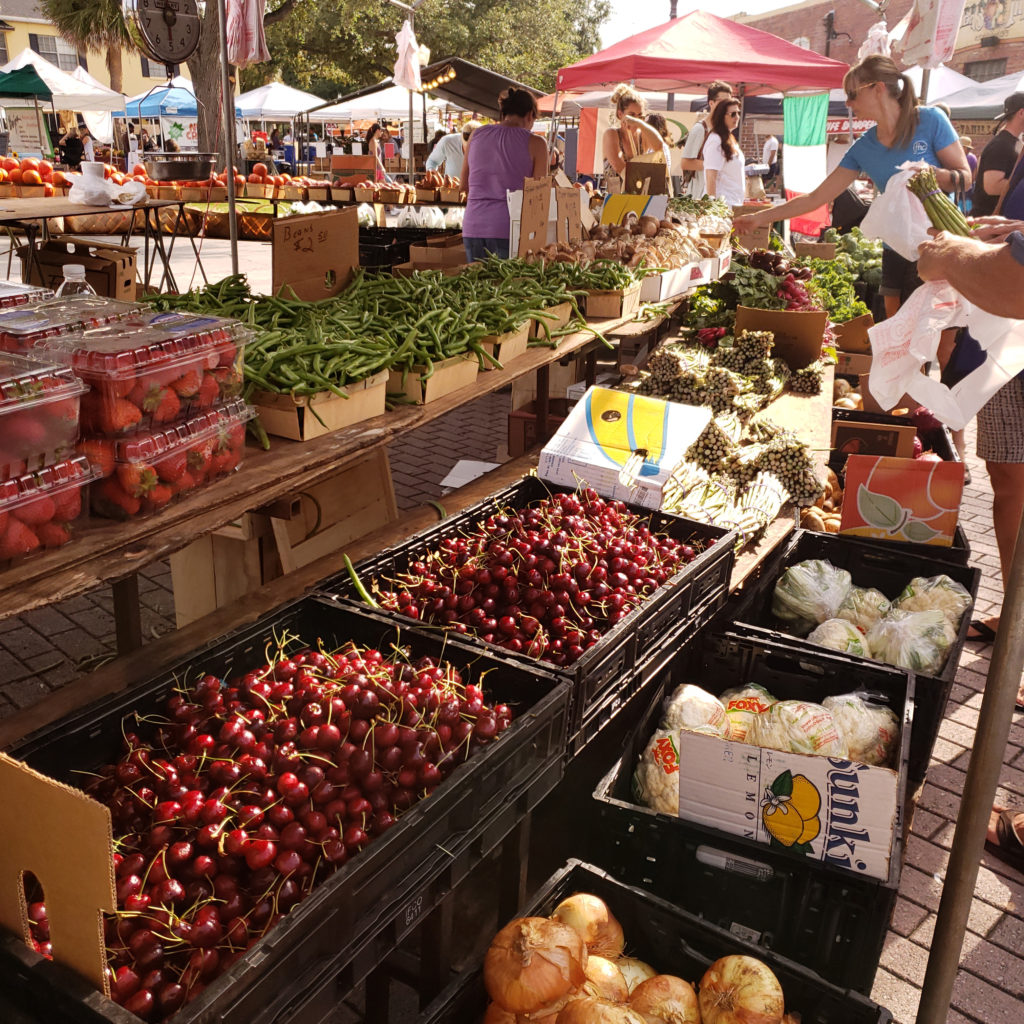
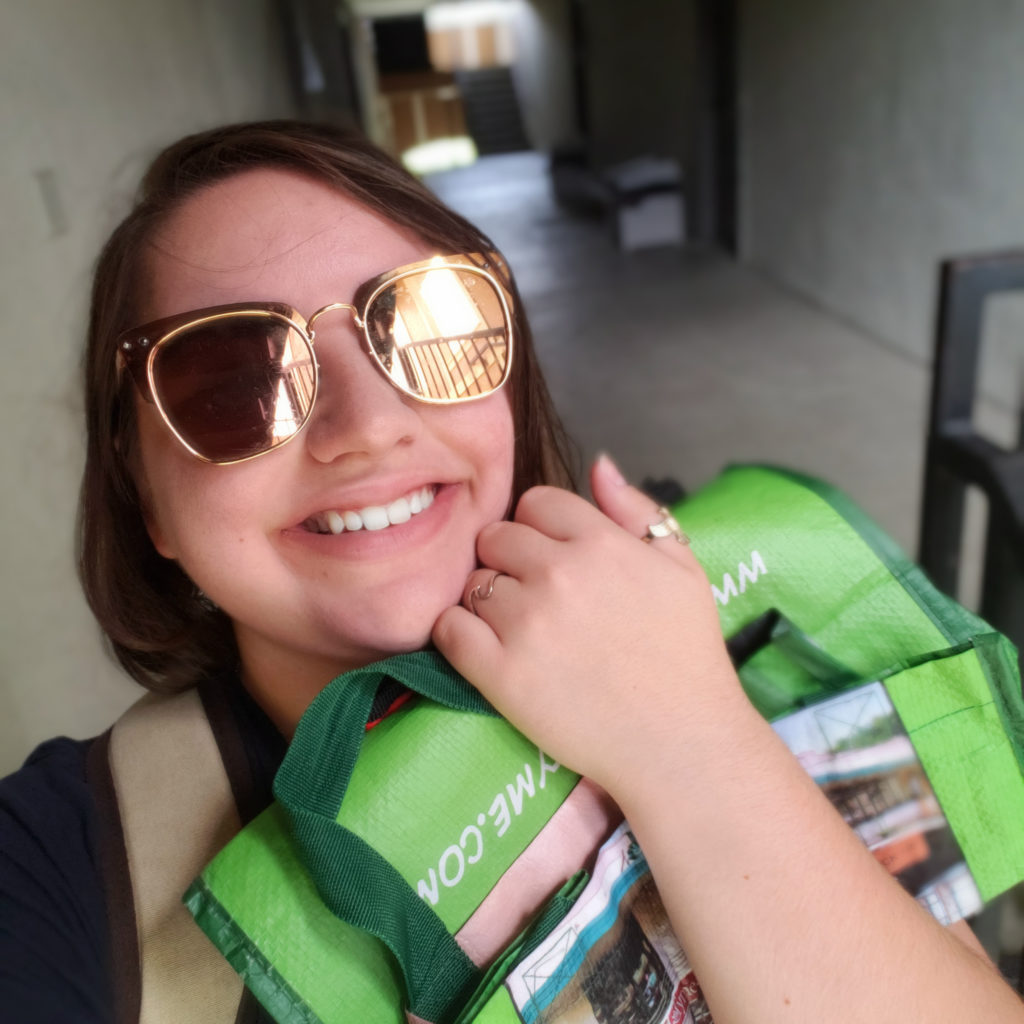
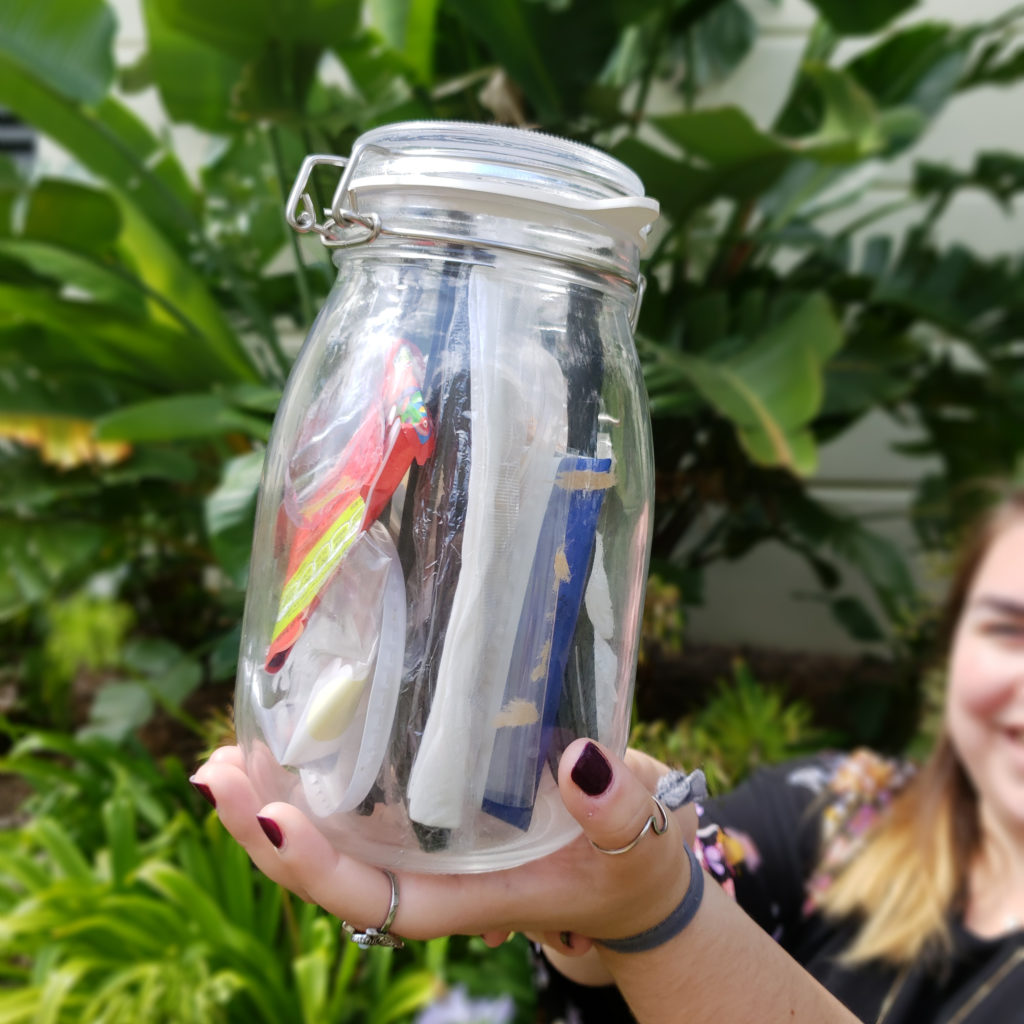
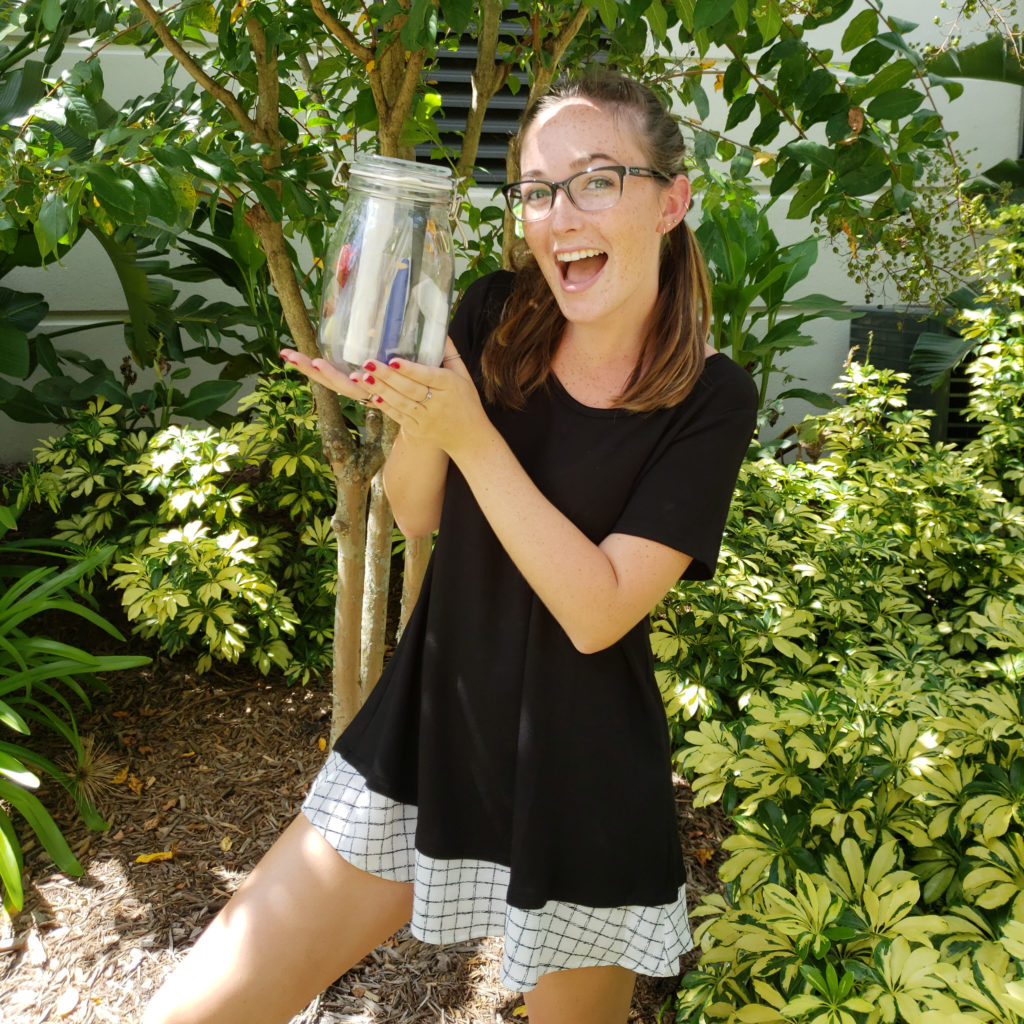
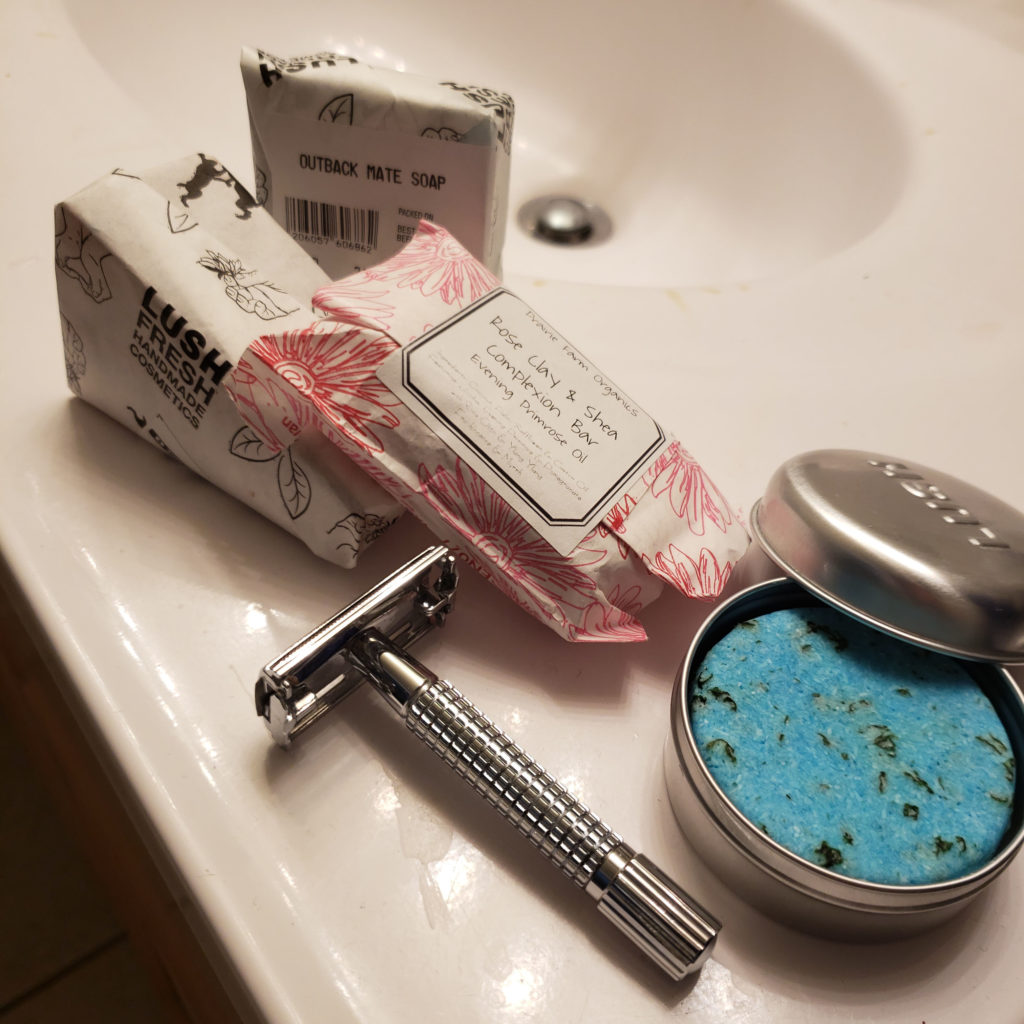
J U L Y 2 0 1 9
Office Competition
Plastic products are available at our fingertips, and their disposable nature implores people to use them. However, for 15 seconds of use, one piece of single-use plastic will take over 400 years to break down completely (Ferreira et al.). This month, our student assistants, Rachel, Dempsey, Nathan, and Michelle joined the 120 million people who will be participating in the Plastic Free July challenge, and have resolved to raise the stakes among themselves with an office competition. Fellow student assistant Dani will moderate the heated battle over who wastes the least plastic. Aside from the perpetual bragging rights, in the end, we all win because of their commitment to reducing their impact on the environment.
House Rules:
1. Competition starts July 1st and concludes July 31st. Winner will be announced August 1st and final results of total overall plastic weight will be recorded.
2. Single use plastics—even if intended to be recycled later—do count toward your total overall plastic use. Specifically to this competition, styrofoam counts as well.
3. Purchases made prior to July 1st (laundry detergent, household cleaning supplies, etc.) does not count to your overall plastic use. However, if the item needs to be replaced, an alternative must be found.
4. Tupperware and other storage containers (Pyrex, etc.) do not count as they are meant to be used for long periods of time.
Stats:
Rachel
Dempsey
Nathan
Michelle
J U L Y 2 0 1 8
Our Experience
It’s no secret that we waste a lot of plastic. About 8.8 million tons of it enter our oceans annually, and that number is growing (Parker, 2018). Last month, our student assistants Dani and Michelle joined the 3.4 million people that participated in the Plastic Free July challenge, and here’s what they experienced:
So, how did it go?
Dani: Overall, not as bad as I thought it would. Doing it at the same time as Michelle helped me feel accountable for my actions, and at the end of the month I drastically reduced my plastic use. Even though I wasn’t able to go completely plastic free, I’m proud of how close I got.
Michelle: It was a challenge. It took a bit to get used to plastic-free grocery shopping. But like any other thing you practice, it became a habit. Looking back at the beginning of July, it’s almost funny at how comfortable I am now compared to then. At first there is a lot of guess work and being unsure if you’re doing it correctly. By the end, I was much more confident.
What was the most challenging part about being plastic free?
Dani: Grocery shopping, hands down. I spent maybe an hour in Lucky’s Market shaking boxes of chicken nuggets to see if I could tell which ones had plastic inside of them. I was mostly unsuccessful. On a positive note, this month helped me reevaluate the amount of meat I consume, and I was able to cut back on that by quite a lot because most meat is packaged in plastic.
Michelle: Snack foods. I like my snack foods and turns out 90% of them contain some type of plastic packaging. Giving up my single serve yogurt was tough but also eye-opening considering I have one almost daily. Also, this month I moved out of my apartment which made for some interesting non-plastic packing methods that worked surprisingly well.
Besides helping the environment, what was rewarding about it?
Dani: Getting other people involved was probably my favorite part, and not just in the Sustainability Initiatives office! I was able to convince my roommates, my parents, and even a few complete strangers to take on the challenge with me. Seeing them be successful in the challenge was very rewarding to me.
Michelle: Coming into work and sharing my accomplishments with Danielle. It’s rewarding committing to a more sustainable lifestyle and to share that experience with someone is encouraging. I think more people would be willing to take that step towards using less plastic if they had someone to support and encourage them. I’m going to get my roommates on board with practicing more sustainable habits.
Do you think you'll continue being plastic free, or was one month enough?
Dani: Most likely not at the capacity that I was, but I will try to maintain a plastic reduced lifestyle. A lot of the changes that I made during July—like using a safety razor, my bamboo toothbrush, solid shampoos, and carrying reusable utensils with me—I’ll probably keep up, but I won’t continue to enforce a moratorium on things I know I can recycle later.
Michelle: I think it was a push in the right direction. At first it really was a matter of having the “I only have this many more days” mindset however, by the end of the month, I was more interested in maintaining some of the new habits I had implemented because of the challenge. Realistically I don’t think I’ll be completely plastic free, but I’ll continue to reduce my single-use plastic significantly.
Any advice for someone looking to try this challenge themselves?
Dani: Don’t feel like you have to spend a lot of money to be plastic free! Some things are an investment, but you don’t need to take the plunge all at once. Do it at your own pace.
Michelle: Do it with someone. Encourage a dependable friend or family member to take on the challenge. It is so much easier and more rewarding when you see change happening beyond yourself. Go shopping together at a bulk store or research and bounce ideas off each other. You’d be surprised how much fun it can be.
Final thoughts?
Dani: Honestly, even if July was a struggle in some places, and I had to run to my car with armfuls of groceries multiple times because I kept forgetting my reusable bags, it was absolutely worth it. I would do it again in a heartbeat, and I encourage others to give it a shot, even if it’s just for a week.
Michelle: Overall, I had fun with it. Not only was it eye-opening but also very rewarding. The experience made me stop and be more aware of my everyday habits. I got better at remembering my reusable bags and I became more confident refusing straws, plastic bags, and other single-use plastic items.
I had to run to my car with armfuls of groceries multiple times because I kept forgetting my reusable bags...
Dani Masi, Social Media Assistant




